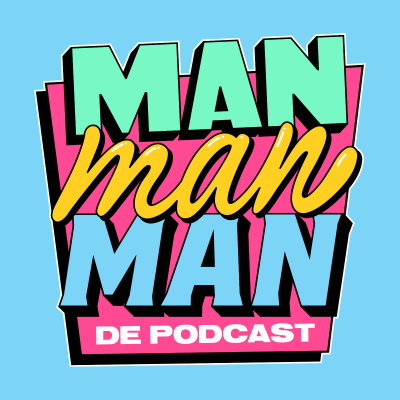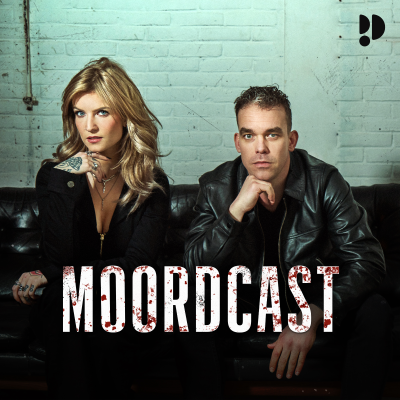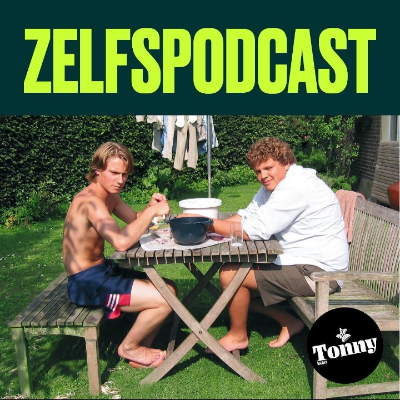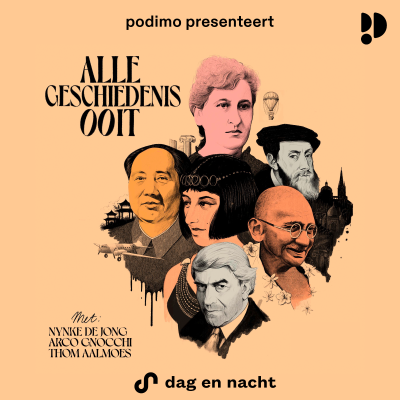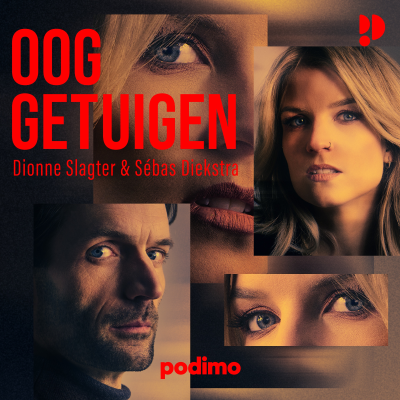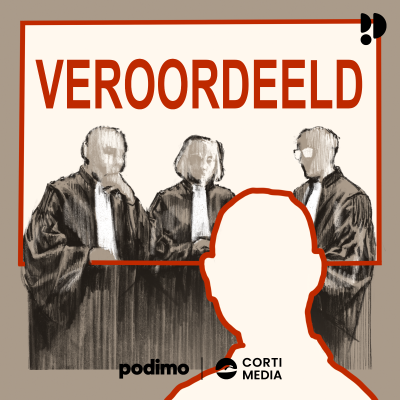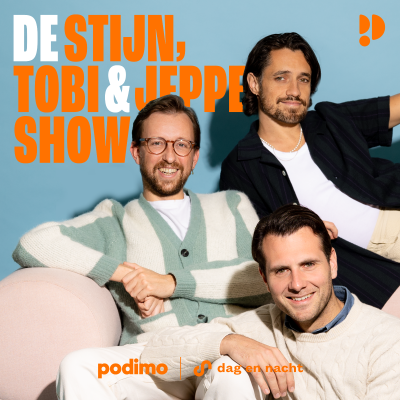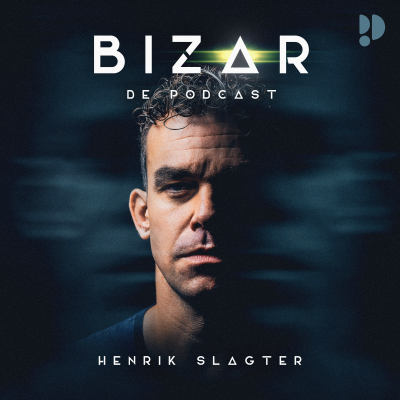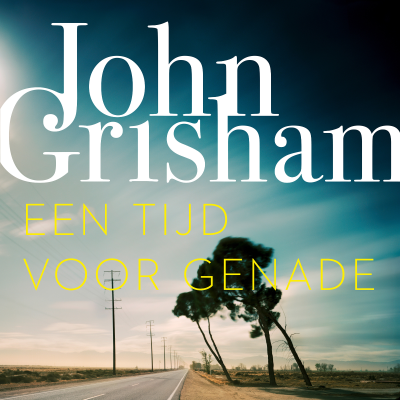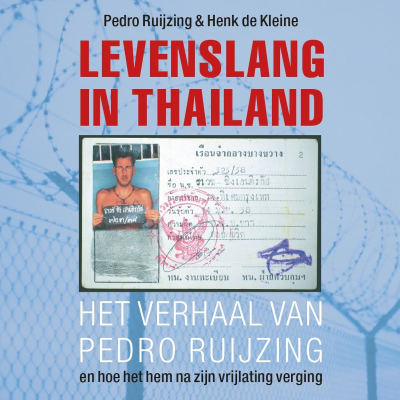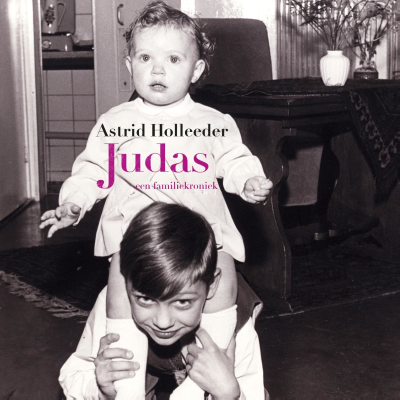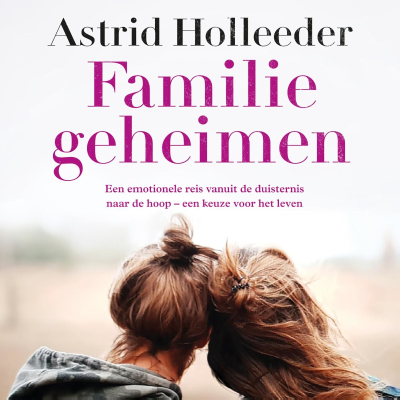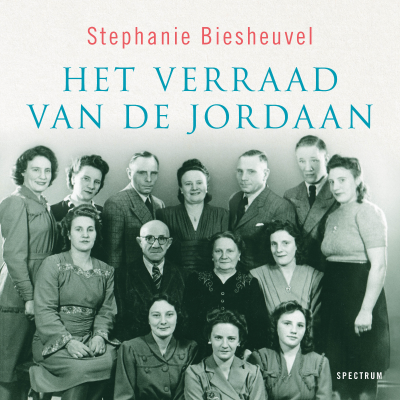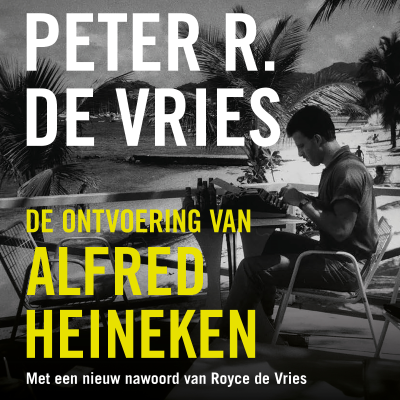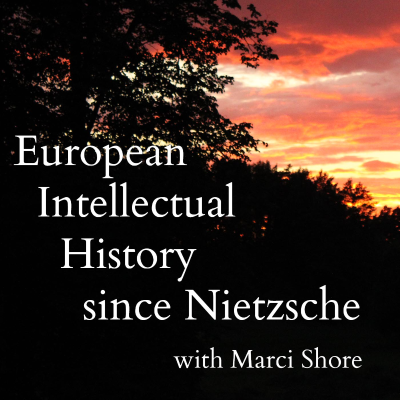
European Intellectual History since Nietzsche
Podcast door Marci Shore
Ideas matter. They cross borders; they are cosmopolitan by their nature. Intellectual history is a history of intertwining conversations, a history of...
Start 14 dagen gratis proefperiode
Na de proefperiode € 6,99 / maand.Elk moment opzegbaar.
Alle afleveringen
25 afleveringen“When they stormed the Bastille they forgot the Sorbonne.”—Hélène Cixous, 1998. HIST 271/HUMS 339: European Intellectual History since Nietzsche is a survey course designed to introduce students to the dominant trends in modern European intellectual history. The class aims to sketch a narrative arc from the late 18th century transition to modernity through the late 20th century transition to post-modernity. Following an overview of the Enlightenment and Romanticism, we move through Hegelianism and Marxism and then on to Nietzsche’s declaration of the death of God. (God had been multifunctional, fulfilling epistemological, ontological and ethical roles. His death left an enormous empty space. Much of modern thought could be described as an attempt to replace God.) Topics include Marxism-Leninism, psychoanalysis, expressionism, structuralism, phenomenology, existentialism, anti-politics, and deconstruction. Authors include Nietzsche, Lenin, Kafka, Freud, Husserl, de Beauvoir, Heidegger, Arendt, Adorno, Sartre, Girard, Foucault, Derrida and Havel. With Marci Shore, Associate Professor of History at Yale. This lecture is also available to watch on YouTube. [https://www.youtube.com/watch?v=teqykibLJwE&list=PLh9mgdi4rNezUjm7niGdUWjnL0lHSDh0U&index=25&ab_channel=YaleCourses]
“In the hut’s book, glancing towards the well’s star, in the hope of a word to come.”—Paul Celan, 1966. HIST 271/HUMS 339: European Intellectual History since Nietzsche is a survey course designed to introduce students to the dominant trends in modern European intellectual history. The class aims to sketch a narrative arc from the late 18th century transition to modernity through the late 20th century transition to post-modernity. Following an overview of the Enlightenment and Romanticism, we move through Hegelianism and Marxism and then on to Nietzsche’s declaration of the death of God. (God had been multifunctional, fulfilling epistemological, ontological and ethical roles. His death left an enormous empty space. Much of modern thought could be described as an attempt to replace God.) Topics include Marxism-Leninism, psychoanalysis, expressionism, structuralism, phenomenology, existentialism, anti-politics, and deconstruction. Authors include Nietzsche, Lenin, Kafka, Freud, Husserl, de Beauvoir, Heidegger, Arendt, Adorno, Sartre, Girard, Foucault, Derrida and Havel. With Marci Shore, Associate Professor of History at Yale. This lecture is also available to watch on YouTube. [https://www.youtube.com/watch?v=DlWcK5PesPc&list=PLh9mgdi4rNezUjm7niGdUWjnL0lHSDh0U&index=24&ab_channel=YaleCourses]
“In the post-totalitarian system, this line runs de facto through each person, for everyone in his or her own way is both a victim and a supporter of the system.”—Václav Havel, “The Power of the Powerless.” HIST 271/HUMS 339: European Intellectual History since Nietzsche is a survey course designed to introduce students to the dominant trends in modern European intellectual history. The class aims to sketch a narrative arc from the late 18th century transition to modernity through the late 20th century transition to post-modernity. Following an overview of the Enlightenment and Romanticism, we move through Hegelianism and Marxism and then on to Nietzsche’s declaration of the death of God. (God had been multifunctional, fulfilling epistemological, ontological and ethical roles. His death left an enormous empty space. Much of modern thought could be described as an attempt to replace God.) Topics include Marxism-Leninism, psychoanalysis, expressionism, structuralism, phenomenology, existentialism, anti-politics, and deconstruction. Authors include Nietzsche, Lenin, Kafka, Freud, Husserl, de Beauvoir, Heidegger, Arendt, Adorno, Sartre, Girard, Foucault, Derrida and Havel. With Marci Shore, Associate Professor of History at Yale. This lecture is also available to watch on YouTube. [https://www.youtube.com/watch?v=94b025iHtAw&list=PLh9mgdi4rNezUjm7niGdUWjnL0lHSDh0U&index=23&ab_channel=YaleCourses]
“I often describe deconstruction as something which happens. It’s not purely linguistic, involving text or books. You can deconstruct gestures, choreography. That’s why I enlarged the concept of text.”—Jacques Derrida. HIST 271/HUMS 339: European Intellectual History since Nietzsche is a survey course designed to introduce students to the dominant trends in modern European intellectual history. The class aims to sketch a narrative arc from the late 18th century transition to modernity through the late 20th century transition to post-modernity. Following an overview of the Enlightenment and Romanticism, we move through Hegelianism and Marxism and then on to Nietzsche’s declaration of the death of God. (God had been multifunctional, fulfilling epistemological, ontological and ethical roles. His death left an enormous empty space. Much of modern thought could be described as an attempt to replace God.) Topics include Marxism-Leninism, psychoanalysis, expressionism, structuralism, phenomenology, existentialism, anti-politics, and deconstruction. Authors include Nietzsche, Lenin, Kafka, Freud, Husserl, de Beauvoir, Heidegger, Arendt, Adorno, Sartre, Girard, Foucault, Derrida and Havel. With Marci Shore, Associate Professor of History at Yale. This lecture is also available to watch on YouTube. [https://www.youtube.com/watch?v=nCGW_H7s7Q4&list=PLh9mgdi4rNezUjm7niGdUWjnL0lHSDh0U&index=22&ab_channel=YaleCourses]
“Power is everywhere; not because it embraces everything, but because it comes from everywhere.”—Michael Foucault, The History of Sexuality vol. I. HIST 271/HUMS 339: European Intellectual History since Nietzsche is a survey course designed to introduce students to the dominant trends in modern European intellectual history. The class aims to sketch a narrative arc from the late 18th century transition to modernity through the late 20th century transition to post-modernity. Following an overview of the Enlightenment and Romanticism, we move through Hegelianism and Marxism and then on to Nietzsche’s declaration of the death of God. (God had been multifunctional, fulfilling epistemological, ontological and ethical roles. His death left an enormous empty space. Much of modern thought could be described as an attempt to replace God.) Topics include Marxism-Leninism, psychoanalysis, expressionism, structuralism, phenomenology, existentialism, anti-politics, and deconstruction. Authors include Nietzsche, Lenin, Kafka, Freud, Husserl, de Beauvoir, Heidegger, Arendt, Adorno, Sartre, Girard, Foucault, Derrida and Havel. With Marci Shore, Associate Professor of History at Yale. This lecture is also available to watch on YouTube. [https://www.youtube.com/watch?v=tyeGAGus-oY&list=PLh9mgdi4rNezUjm7niGdUWjnL0lHSDh0U&index=21&ab_channel=YaleCourses]
Overal beschikbaar
Luister naar Podimo op je telefoon, tablet, computer of auto!
Een universum van audio-entertainment
Duizenden luisterboeken en exclusieve podcasts
Geen advertenties
Verspil geen tijd met het luisteren naar reclameblokken wanneer je luistert naar de exclusieve shows van Podimo.
Start 14 dagen gratis proefperiode
Na de proefperiode € 6,99 / maand.Elk moment opzegbaar.
Exclusieve podcasts
Advertentievrij
Non-Podimo podcasts
Luisterboeken
20 uur aan / maand
